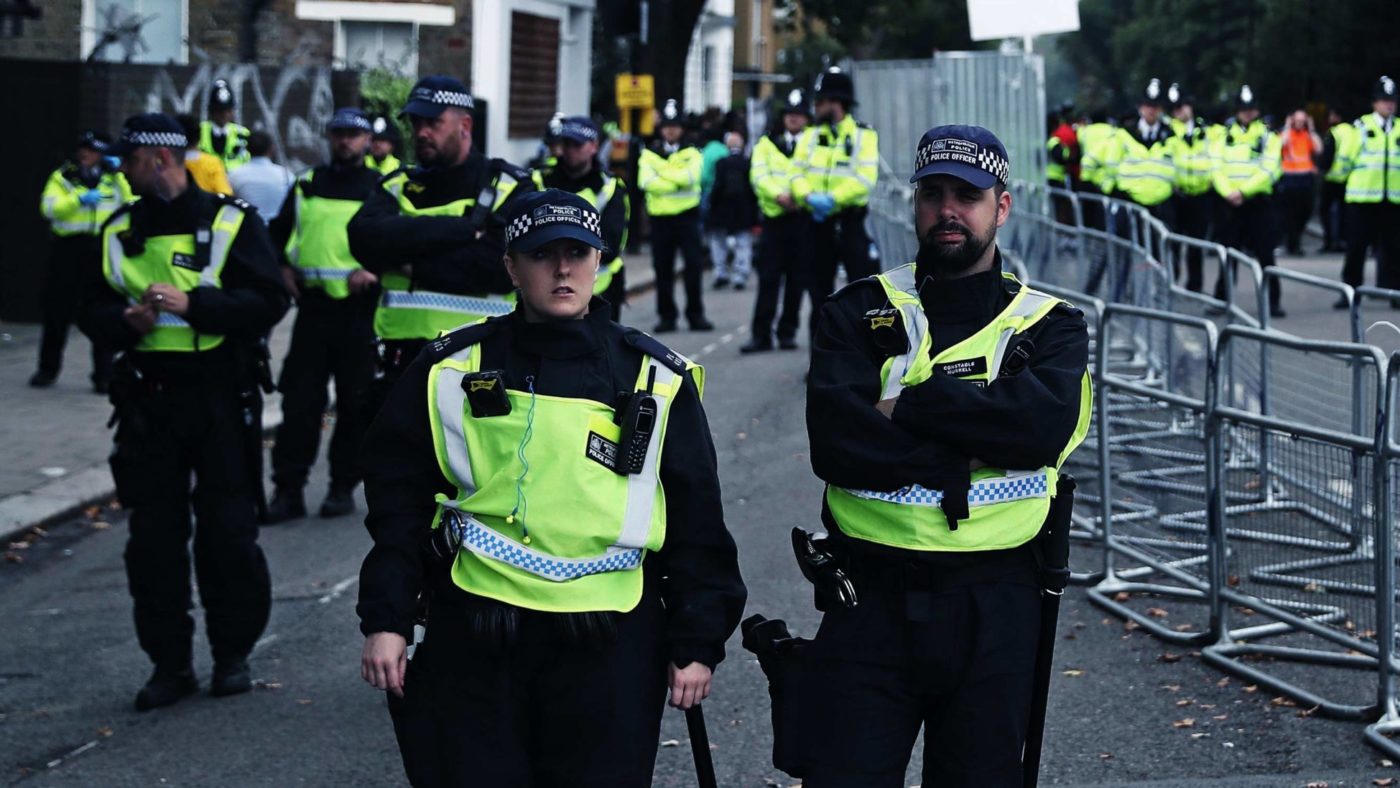Yesterday, Sara Thornton, the Capo dei Capi of Britain’s police leaders caused quite a stir by suggesting at their annual conference that rather than focus on deserving causes, such as misogyny, scarce resources should be directed towards tackling increasing levels of violence and burglary. The head of the Metropolitan Police, Cressida Dick, backed up that view on the Today programme this morning.
Thornton is now having her collar felt by the right and left with the usual suspects denouncing this intervention as either a victory for common sense or a tin-eared misreading of deserving #metoo outrage. A Police Chief’s job is not a happy one.
In the trenches of frontline policing it’s not much cop either. Offences are up and charges are down. The police are dealing with more and more various crime with 20,000 fewer officers in England and Wales. Peter Neyroud, the former Chief Constable of Thames Valley and a leading policing academic has estimated these cuts amount to 4.5 million fewer days of police investigation. If you’re Peter Hitchens this means merely 4.5 million uneaten doughnuts. Take your pick.
These statistics are starting to have some traction on the ground where harried police officers are rarely seen except hurtling by in cars in response to life-threatening emergencies. The ill winds of austerity have blown some good for the criminal classes, emboldened by an absence of visible community policing and the paucity of response in detection or, if they are particularly unlucky, prosecution.
In the meantime, our remaining cops are being relentlessly reeled into policing areas of public life that in the world before Twitter used to be patrolled by respect, restraint, common sense and decency. You might not be able to have your burglary solved but online, you can move rhetorical mountains with an online posse and a hashtag. Virtue-signalling pervades this virtual reality. The police cannot get on top of industrial-scale sexual violence against children or stop two women a week being murdered by their male partners, but if you need a rainbow painted paddy wagon, they’ve got one to spare.
Add to this an explosion of online crime — from child abuse pornography to fraud, the dangerous fetish of believing accusers rather than the impartial investigation of accusations, the monstrous injustice of mentally ill people shrugged off by other services languishing in custody suites, the lethality of the threat from Islamist and far-right terrorism, the fearful grip on many communities of organised crime, an outrageous epidemic of urban knife crime where young black men are killing each other over trivia. This is a charge sheet from hell.
And what of the people in the front line trying to deliver a service caught between the devil of inadequate resources and the deep blue sea of public expectation? Well, they are falling over too, mentally and physically – the good news is that those at the top of the service like Sara Thornton are finally starting to respond. John Sutherland, a retired Police Commander and author of the superb memoir, Blue – keeping the peace and falling to pieces, recently said, “For more than twenty-five years, I worked with heroes – the finest men and women you could ever hope to know. And the very best ones amongst them are speaking up now – constructively and insistently – telling us that all is not well.”
A BBC investigation last year revealed that increases across the board in staff sickness days over six years broadly tracked decreases in the numbers of officers available to deploy. While statisticians are fond of telling us correlation is not the same as causation, other respected players in this field, such as the Home Affairs Select Committee and the National Audit Office, reflect the same sentiments. Doing so much more with so much less appears to be breaking our police service.
In these circumstances it’s possible to argue that there is a false distinction between police involvement in non-crime and crime issues. If they relate to public safety, policing surely does have a role. This is undoubtedly true. Preventative policing has largely disappeared from the public realm – often because its value can’t easily be quantified in the depressing calculus of resource prioritisation.
Inevitably, the first casualty in the war on “waste” is the bobby on the beat. Removing visible community police officers is bad for community morale and seriously short-sighted. Intelligence dries up. A lack of visible and trusted authority emboldens criminals and their antisocial forebears. Problems that start off manageable – for example, women feeling threatened in public spaces – escalate into violence. Unfixed, broken windows turn into broken bones.
What is plainly evident now, whatever side of the debate you’re on, is that policing is being forced into becoming an ‘either/or’ public service – and it’s a realisation that is starting to dawn on voters. Unlike prisons, where many of the same consequences of staff cuts play out in secret, policing is the lodestone for our sense of personal security.
There is a potent and destructive circularity to current public sentiment — we feel less safe because we are less safe. With current levels of supply and demand policing is plainly unable to be the service we want and need. This should matter more to our energetic — and ambitious — Home Secretary, Sajid Javid. As the founder of modern policing, Robert Peel, once said, “no minister ever stood or could stand against public opinion”.


